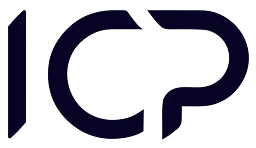Multicultural teams in project management
Project management in organizations with employees from different cultures, speaking different languages, and adhering to different values can be a significant...

Tell our team about your needs and we will customize the tool as part of your chosen package!
Project management in organizations with employees from different cultures, speaking different languages, and adhering to different values can be a significant challenge for the project manager. Although we are bound to encounter some difficulties and obstacles in project evaluation, we can also find ideas and solutions to help in successful management. All that is because cultural differences can be an accelerator for action. How to manage multinational teams and how to talk to partners who have a different value system?
What are the best practices in multicultural project management?
Some years ago, in one of the interviews, the HR coordinator of Hewlett-Packard talked about multicultural project evaluation and what a work environment looks like. Why do we say "multiculturalism" and not "different cultures"? Because even if our team is composed of people coming from different environments and regions of the world, at the moment of entering the group they become a part of one team that should and sometimes even has to overcome the barriers.
However, when we talk about two different enterprises, coming from different parts of the world and guided by other values, we can rarely avoid using the phrase "different cultures." And although companies frequently need to establish relationships with other entities, inter-organizational barriers may often arise due to differences resulting from a lack of understanding of the other side. This is why large companies cannot allow themselves to be affected by image bloopers and language misunderstandings. Hence, experts in image and behavior in the given culture often take part in the meetings.
Let's get back to the topic. Creating multicultural organizations and projects seems to be valuable for the company. Just look at the biggest corporations in the world. Google, Amazon, Microsoft, and many other enterprises create teams based on specialists coming from different regions of the world. In the modern world, the language barrier is becoming more and more blurred, but we cannot say it does not exist. English has become common, but project implementation often requires knowing it perfectly.
If we take a look at other companies, those who have no issue dealing with projects run by multicultural groups are Disney, Mastercard, Coca-Cola, Marriott, and Sodexo. And this is just the beginning of the list.
Managing a multicultural team
At one of the PMI conferences, Anbari Khilkhanova claimed that project managers in the modern multicultural global business environment often encounter cultural differences which can improve or disturb the successful finalization of tasks. Multicultural management studies conducted by Hofstede put forth a proposed set of dimensions along which we can build value systems. They have an impact on people's thoughts, feelings, and actions, as well as the behavior of organizations and institutions.
The said dimensions reflect the basic issues each society needs to handle for itself. However, solutions to these problems differ from culture to culture. The dimensions can be grouped into the following categories:
- Individualism versus collectivism
- orientation and motivation-masculinity and femininity, avoidance, uncertainty, and bossiness;
- attitudes towards time—long-term and short-term;
- control—internal and external, when the group believes that it controls its environment or that it cooperates with it;
- social and cultural dimensions—paternalism and fatalism. In a paternalistic relationship, the role of the leader is to provide guidance, protection, civilization, and care to his/her subordinate, and the subordinate’s role is to be loyal and respect the leader in return. Fatalism is a belief that you cannot fully control the results of your actions and, thus, try too much to achieve something, and long-term plans are not profitable;
- High-context cultures have extensive information webs and require minimum information, while low-context cultures require more additional information before they can make a decision.
These are just a few of the most important dimensions which allow the manager to manage the project and the people participating in it in a way that allows them to avoid internal conflicts and complete the task. Creating such teams and managing them requires not only high leadership qualifications but also behavioristic, psychological, and sociological knowledge.
Naaee.org states that when managing such projects, the leader has to take many tasks on his shoulders. The project involves the commitment of not only funds and resources but also people. The completion of the undertaking is to result in a completed task with satisfactory effects, etc. When working on the project, the leader has to be able to manage people and their relations, internal and external procedures, show clear goals, divide the team by tasks, structures, and roles, as well as reward the subordinates and solve conflicts.
There is no recipe for success.
Working with people from many countries, communicating in different languages, who often have different working hours, habits, beliefs, behaviors, and opinions can be, unfortunately, very tiring for the PM and those with less experience—even stressful. Despite that, every other completed project is a reward for the work put into it. For those who want to read more about the subject of multicultural project management in the organization, we recommend the PMI library.
Also read

Which is a benefit of collaboration and teamwork?
Working with others can feel slower and more complex than working alone, yet collaboration continues to play a key role in learning and work. In this article, we take a closer look at the real benefits of teamwork and why it often leads to better results.
Try IC Project in your company Our team is ready to help!

Create a free account and test with no obligation




.png)